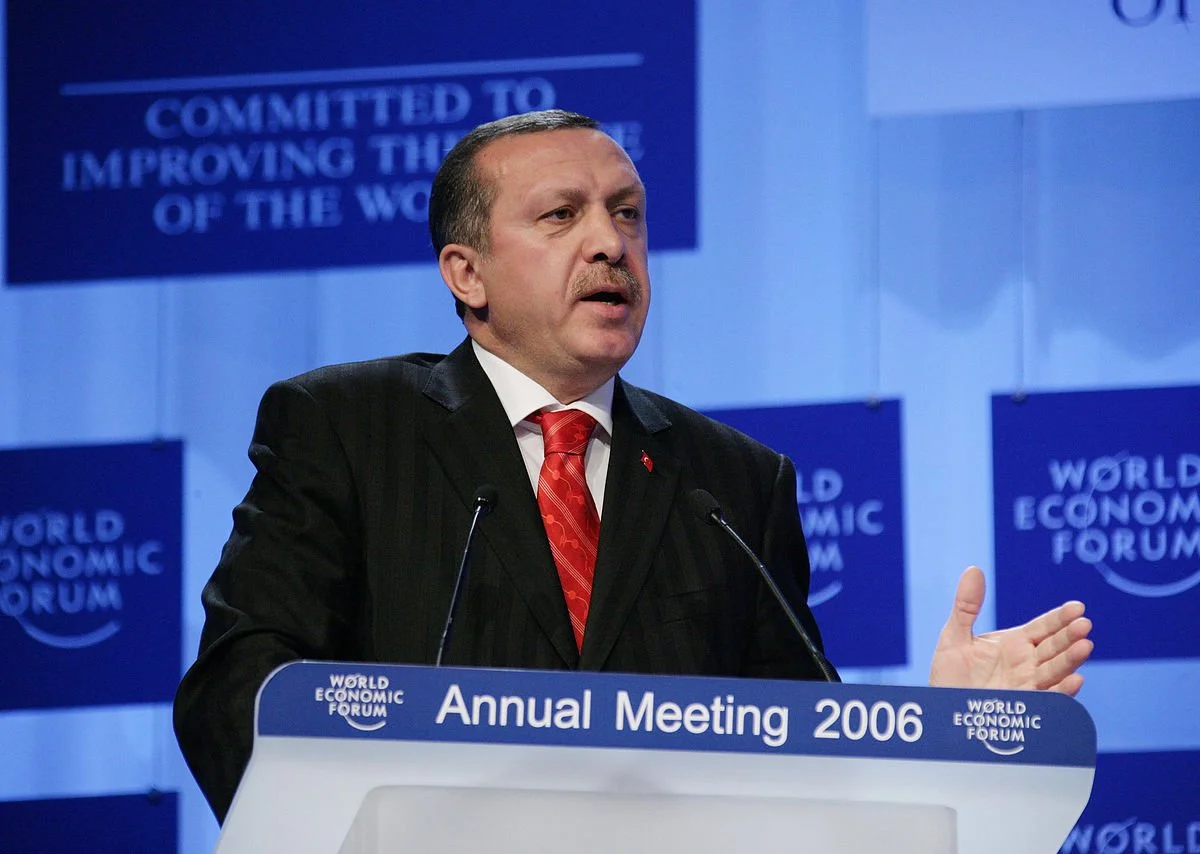Turkey Snubs Press Freedom Mission, Female Journalists in Peril
Recep Tayyip Erdogan. Photo: World Economic Forum swiss-image.ch/Photo by E.T. Studhalter shared under CC BY-SA- 2.0
Having declared that journalists in Turkey - who are being harassed, detained, and jailed - are “incomparably free” - President Recep Tayyip Erdogan and ruling AKP party officials refused to meet a contingent of media freedom groups.
Led by the New York-based Committee to Protect Journalists, and including the International Press Institute, Reporters Without Borders, Human Right Watch, and Osservatorio Balcani Caucaso Transeuropa, a think tank focused on seven European countries, the team went to Ankara but was shut out.
CPJ said that the mission “got off to a disappointing start,” as the media representatives wanted to talk to government officials about a repressive social media law, proposed restrictions on foreign funding and the potential criminalization of vaguely-defined “disinformation.”
“The government, however, decided to pretend it wasn’t at home,” a CPJ statement said of the disappointment, although the group was able to meet with a number of regulators, diplomats, editors and opposition politicians, including members of Turkey’s parliamentary Human Rights Commission.
The mission came after the Coalition for Women in Journalism (CFWIJ) said it had recorded 204 cases of violations against women journalists who are increasingly at risk from Erdogan’s heavy-handed methods to stifle any dissenting media.
“The state has routinely weaponized its institutions to target them,” the group said, adding that at least 75 women have faced legal persecution while 38 were assaulted while on assignment by police or government supporters.
“Women journalists have also been targeted through organized troll campaigns online as well as through state media for criticizing government policies,” added CFWIJ, denouncing what it called “intimidation tactics.”
Özgür Öğret, a Turkish freelance journalist and CPJ’s Turkey representative who was lead researcher for the 2012 CPJ special report Turkey’s Press Freedom Crisis, told Blueprint for Free Speech that, “Everybody knows Turkey has numerous press freedom problems and denying their existence is not helping anyone.”
Before the mission, he told Blueprint that, said “All journalists in Turkey work under less than ideal conditions on many levels but it cannot be denied that women journalists have to deal with misogyny, sexism and harassment on top of the other problems and hardships of the profession.”
That wasn’t on the mission agenda and while the media envoys got nowhere in hopes to talk to high-ranking officials, particularly from the Justice Ministry, they were backed by rival parties.
Mahmut Tanal, the deputy of the center-left Republican People’s Party (CHP), said “Even the AKP not showing up to the meeting is a statement on the status of press freedom,” he said.
TAKE -30 -
Turkey in 2020 was the second-largest jailer of journalists worldwide, CPJ reported, but Erdogan, in an interview with the United State’s CBS Face The National program, said that he doesn’t accept media group reports of journalists being arrested.
The mission members said they were especially troubled by a draft law sent to Parliament by a deputy that would tighten government supervision over foreign-funded news outlets - much like Russia has done to control independent media, although Erdogan hasn’t said if he will push it.
AKP politicians have publicly said that Turkey should jail those who spread disinformation on social media, but have yet to put forward proposed legislation, said CPJ.
The government hasn’t given more details of the disinformation legislation, but it was said to include prison sentences up to five years for spreading false news on social media, the kind of language that’s been a cover for governments to strangle criticism.
The proposal comes a year after Turkey regulated social media platforms with requirements that they have a Turkish representative to handle questions and deadlines for taking down posts.
Renan Akyvas, IPI’s Turkey Program Coordinator, told Blueprint that despite being ignored by the government the mission was successful because of meetings with lawmakers and other institutions.
“We shall continue to advocate both domestically and internationally to put pressure on the government to restore freedom of the press and journalists’ rights,” she added.
“We kept reminding the authorities that journalists must be protected by the police instead of being targeted, and the lack of investigation into attacks which leads to increasing impunity is an urgent matter that must be looked at immediately.”
She said the job of female journalists in Turkey is decidedly more difficult “and reporting is harder than their male colleagues as they are often easily targeted both online and on the field.”
Ogret said there might be a sliver of hope, saying that the government “generally denies the existence of the country’s press freedom problems and insists on looking at things from a vaguely defined ‘terrorism’ angle which makes dialogue difficult and progress unlikely.”
But he added that it “is also sensitive about international criticism. This makes keeping the conversation on press freedom in Turkey alive on an international scale essential … documenting the attacks on press freedom and therefore having solid evidence in hand while arguing the problems is extremely important.”
He added: “Decent investigative reporting and persistent advocacy are the best tools we have against the Turkish government’s denial strategy.”
The mission visited the Socialist daily Evrensel, which is barred from getting state advertisements, an important source of revenue, and has been forced by courts to remove stories deemed to damage an individual’s reputation.
Chief Editor Fatih Polat told the members that, “We are reporting on bad things but we will keep doing our job with a smile on our faces. Let nobody think it is too late for Turkey. There is room left to breathe.”

